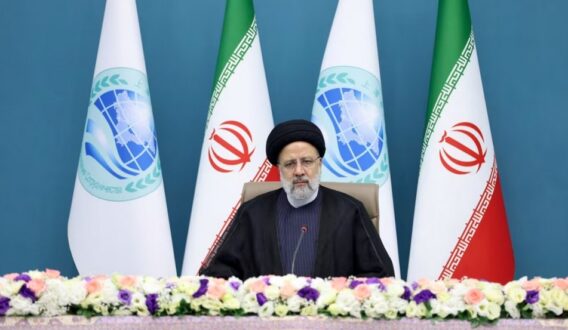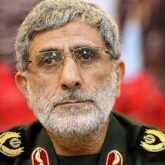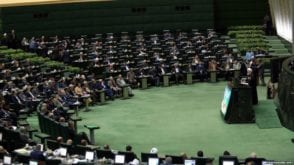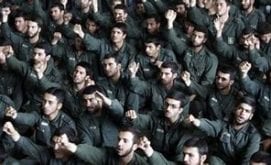Al-Monitor – Iranian President Ebrahim Raisi said reviving the 2015 Iran nuclear deal with the United States was not his priority, claiming that under his administration, Tehran has managed to overcome Western sanctions.
Addressing reporters at a televised press conference in Tehran on Tuesday, Raisi said the accord — formally known as the Joint Comprehensive Plan of Action (JCPOA) — was “only one among many files” to be handled by his government.
“We pursued relations with neighbors, and we succeeded,” he added, praising his government for ascending into such non-Western bodies as the Shanghai Cooperation Organization and the BRICS group of nations. Membership in those entities, according to Raisi, is an indication of “Iran’s progress and the failure of the enemies in isolating it.”
Despite the initial tendency expressed by the administration of President Joe Biden to reverse the American departure from the JCPOA under his predecessor, Donald Trump, US-Iran diplomacy to resurrect the accord has stalled since May 2022.
Unlike Raisi, who hails from the uncompromising, hard-line camp, former Iranian President Hassan Rouhani sought reconciliation with Western nations through the JCPOA, which he needed for sanctions relief and to pull Iran out of isolation. “Some find solutions in the smiles of America and a few European countries,” Raisi said in apparent criticism of his predecessor. “But we do not wait for those smiles and do not hinge public livelihood upon the will of those states.”
Yet during Raisi’s two years in office, Iran’s economy has made little tangible progress toward sanctions relief. While the lifeline oil exports have gradually grown, prices across multiple sectors continue to hit all-time highs. The country’s national currency has also been dipping sharply as foreign currency reserves are squeezed, mostly due to funds that are blocked abroad.
The issue was raised at the Tehran press conference, with Raisi specifically asked about his position on assets reportedly held in Japan. “Our advice for the Japanese government is to live independently from the Americans,” he declared. “If we have some funds left there, Japan should not make decisions under the influence of others.”
Raisi later appeared to modify his own comments by asserting that South Korea is the sole country where Iranian funds — an estimated $6 billion — are frozen. Earlier this month, Washington and Tehran both confirmed having reached a prisoner swap deal in principle, under which those funds are expected to be unfrozen in exchange for the release of five Americans imprisoned by the Islamic Republic.
The battered economy and soaring inflation, which Raisi said have been tackled by his government, have over the past year brought into the streets a growing number of Iranians from varying walks of life.
And in mid-September, Iran will see the first anniversary of Mahsa Amini’s death in hijab police custody. The unrest triggered by the young woman’s tragedy engulfed Iran for months and drew a heavy-handed government response that left some 530 protesters dead, according to rights activists.
Ahead of the anniversary, Iran’s intelligence community is ramping up its arrest spree that has hit the families of the crackdown victims as well as activists nationwide.
“There is no turbulence in Iran,” Raisi said in response to a reporter at the press conference, denying that the Islamic Republic’s policies had polarized the nation.
 Shabtabnews In this dark night, I have lost my way – Arise from a corner, oh you the star of guidance.
Shabtabnews In this dark night, I have lost my way – Arise from a corner, oh you the star of guidance.



